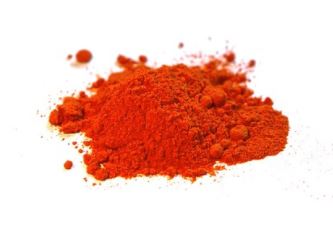PCOS: 6 Ways to Control Insulin Resistance
Here are six treatment options for women who have PCOS and insulin resistance.
Free PCOS Newsletter
1. Exercise!

Any exercise is beneficial, for a multitude of reasons. However, you may need to increase the intensity of your exercise to get the desired effect. A recent study reported that intense aerobic exercise for 30 minutes at least 5 times a week improves insulin sensitivity. Women who exercised less or not at all didn't have an improvement in insulin sensitivity. Of course, we strongly recommend you consult with your physician before starting any exercise program.
We also recommend that you be as physically active as you possibly can. Take the stairs instead of the escalator or elevator. When shopping, park farther away from the store door. Develop active recreational activities such as gardening. If you have a desk job, get up every hour or two and briskly walk around the office building.
2. Don't Obsess about Losing Weight Related to PCOS
It's more important to lose inches than weight, especially if you have PCOS.
First of all, overweight women with PCOS appear to have a genetic predisposition that makes it more difficult for them to lose weight. So you need to be patient and very persistent with your physical activity program. There's no need for you to get discouraged if you don't lose 30 pounds in 30 days. (In fact, we discourage such extreme measures).
A better indicator of progress is your percentage of body fat, which is the ratio of fat to lean body mass. For example, if you compare two women of the same height and weight, but one has a body fat percentage of 25% and the other has 50%, you will notice how different they look. The woman with the lower body fat percentage will be noticeably smaller, even though she is the same weight. One reason is that muscle is heavier than fat. The other reason is that muscle cells are smaller than fat cells.
Regular exercise causes your muscles cells to multiply, and they get better at burning fat. So building muscle mass actually adds to your weight. However, your fat cells shrink as you burn up stored fat. You will still have all of your fat cells, but they will be smaller, and thus you lose fat weight. In other words, consistent exercise helps you to gain muscle weight and lose fat weight. So long as you are doing that, you are heading in the right direction.
We recommend that you get a periodic body fat percentage test from your health practitioner or health club.
3. Improve Your Diet
Here are some quick dietary tips:
- Switch from refined carbohydrates to a complex carbohydrate, low glycemic diet
- High ratio of soluble fiber to insoluble fiber.
- Avoid saturated fat
- Avoid trans fats
- Increase monounsaturated oils
- Increase omega 3 oils (fish, flax).
- Smaller, more frequent meals.
- Reduce alcohol intake.
- Have mixed meals of carbohydrate, protein and fat.
All of the above topics are reviewed in great detail in The Natural Diet Solution for PCOS and Infertility.
An insulin resistance diet is the same thing as a PCOS diet.
Increase your consumption of omega-3 fats. Among other benefits, omega-3 fatty acids help to reduce obesity and improve insulin sensitivity. This in turn improves your odds of becoming fertile. Common sources of omega-3 fats are fish, cod liver oil, and EPA/DHA capsules.
Avoid trans-fats, which are listed on package labels as “partially hydrogenated” oils. However, other processed but unlabeled foods such as baked goods may also contain trans-fats. We haven't yet come across any human studies, but in one study of female pigs, the group consuming a trans-fat diet had fertility problems while the groups consuming either lard or omega-3 fats did not.
4. Add Some Chili Powder to Your Food

Women with PCOS commonly have an exaggerated, excessive insulin response to starches and sugars consumed during a meal.
We uncovered some research from the University of Tasmania in Australia showing that consumption of chili powder with a meal reduced the amount of insulin required to handle the increase of blood sugar with a meal. For this reason, chili should be beneficial in controlling PCOS-related insulin problems.
The chili was especially beneficial for those who were overweight.
Why not spice up your meals with some occasional chili?
Source: Ahuja KD et al Effects of chili consumption on postprandial glucose, insulin, and energy metabolism, Am J Clin Nutr. 2006 Jul;84(1):63-9
5. Use Carefully Selected Nutritional Supplements
Medical studies have demonstrated that people who are insulin resistant or have diabetes are lacking in vitamins, minerals, essential fatty acids and other specialty nutrients. These lacks contribute to insulin resistance and blood sugar problems.
Your doctor may say that there's no need for supplementation because you get all you need from your food. The facts don't support this assertion. Studies have clearly shown that our food supply is not as nutrient-dense as it used to be.
Modern agricultural practices, soil depletion and food processing have stripped away a lot of the nutrients you need to prevent insulin problems and be healthy. Moreover, our busy lifestyle doesn't allow us the time needed to prepare nutritious meals. Instead, we eat prepared meals or processed convenience foods. Unless you're growing and preparing your own food, it's not likely you're getting everything you need from your diet.
A number of nutritional supplements and herbs may improve insulin function are:
- Biotin
- Calcium
- Chromium
- Coenzyme Q10
- d-Pinitol
- Glucomannan (soluble fiber)
- Lipoic acid
- Magnesium
- NAC (N-acetyl cysteine)
- Quercetin
- Selenium
- Taurine
- Vanadyl sulfate
- Vitamin B6
- Vitamin C
- Vitamin E
- Zinc
- Berberine
- Bitter melon (momardica charantia)
- Goats rue (galega officinalis)
- Gymnema.
You may wish to consult with a health professional who understands nutritional supplementation.
6. Pharmaceutical Treatment
Metformin (Glucophage) is one of the most commonly prescribed drugs for women with polycystic ovarian syndrome. Metformin acts by causing the liver to decrease its production of glucose, so that there is no longer excessive glucose to trigger unneeded insulin secretion.
Get Answers to your Questions about
- Fertility
- Weight Control
- Hair Loss
- Stress
- Unwanted Hair
- Acne...and more!
FREE PCOS Report
and Newsletter

Your email is safe with us. We respect your privacy, and you may unsubscribe at any time.
Recent Articles
-
PCOS Long Journey to The Happy End
Apr 30, 18 07:24 PM
Hi Girls, Maybe my story will have one day a good end but I am not there yet. Until I was 31 years old I lived my dream, having lovely husband, good -
PCOS and Miscarriage
Apr 17, 18 04:03 PM
Proper diet and natural supplements can help the body maintain a pregnancy through successful delivery.
-
How to Deal with PCOS and Stress
Apr 04, 18 04:19 PM
Your body has a natural capacity to heal itself if you provide it with the necessary tools.





